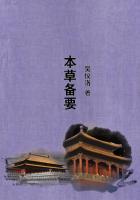It is good that the study of language should be historical, but the first requisite is that the history should be sound. How little had been learnt of the true history of language a century ago may be seen from a little book by Stephen Weston first published in 1802 and several times reprinted, where accidental assonance is considered sufficient to establish connection. Is there not a word "bad" in English and a word "bad" in Persian which mean the same thing? Clearly therefore Persian and English must be connected. The conclusion is true, but it is drawn from erroneous premises. As stated, this identity has no more value than the similar assonance between the English "cover" and the Hebrew "kophar", where the history of "cover" as coming through French from a Latin "co-operire" was even in 1802 well-known to many. To this day, in spite of recent elaborate attempts (Most recently in H. Moller's "Semitisch und Indogermanisch", Erster Teil, Kopenhagen, 1907.) to establish connection between the Indo-Germanic and the Semitic families of languages, there is no satisfactory evidence of such relation between these families. This is not to deny the possibility of such a connection at a very early period; it is merely to say that through the lapse of long ages all trustworthy record of such relationship, if it ever existed, has been, so far as present knowledge extends, obliterated.
But while Stephen Weston was publishing, with much public approval, his collection of amusing similarities between languages--similarities which proved nothing--the key to the historical study of at least one family of languages had already been found by a learned Englishman in a distant land.
In 1783 Sir William Jones had been sent out as a judge in the supreme court of judicature in Bengal. While still a young man at Oxford he was noted as a linguist; his reputation as a Persian scholar had preceded him to the East. In the intervals of his professional duties he made a careful study of the language which was held sacred by the natives of the country in which he was living. He was mainly instrumental in establishing a society for the investigation of language and related subjects. He was himself the first president of the society, and in the "third anniversary discourse"delivered on February 2, 1786, he made the following observations: "The Sanscrit language, whatever be its antiquity, is of a wonderful structure;more perfect than the GREEK, more copious than the LATIN, and more exquisitely refined than either, yet bearing to both of them a stronger affinity, both in the roots of verbs and in the forms of grammar, than could possibly have been produced by accident; so strong indeed, that no philologer could examine them all three, without believing them to have sprung from some common source, which, perhaps, no longer exists: there is a similar reason, though not quite so forcible, for supposing that both the Gothick and the Celtick, though blended with a very different idiom, had the same origin with the Sanscrit; and the old Persian might be added to the same family, if this was the place for discussing any question concerning the antiquities of Persia." ("Asiatic Researches", I. page 422, "Works of Sir W. Jones", I. page 26, London, 1799.)No such epoch-making discovery was probably ever announced with less flourish of trumpets. Though Sir William Jones lived for eight years more and delivered other anniversary discourses, he added nothing of importance to this utterance. He had neither the time nor the health that was needed for the prosecution of so arduous an undertaking.
But the good seed did not fall upon stony ground. The news was speedily conveyed to Europe. By a happy chance, the sudden renewal of war between France and England in 1803 gave Friedrich Schlegel the opportunity of learning Sanscrit from Alexander Hamilton, an Englishman who, like many others, was confined in Paris during the long struggle with Napoleon. The influence of Schlegel was not altogether for good in the history of this research, but he was inspiring. Not upon him but upon Franz Bopp, a struggling German student who spent some time in Paris and London a dozen years later, fell the mantle of Sir William Jones. In Bopp's Comparative Grammar of the Indo-Germanic languages which appeared in 1833, three-quarters of a century ago, the foundations of Comparative Philology were laid. Since that day the literature of the subject has grown till it is almost, if not altogether, beyond the power of any single man to cope with it. But long as the discourse may be, it is but the elaboration of the text that Sir William Jones supplied.
With the publication of Bopp's Comparative Grammar the historical study of language was put upon a stable footing. Needless to say much remained to be done, much still remains to be done. More than once there has been danger of the study following erroneous paths. Its terminology and its point of view have in some degree changed. But nothing can shake the truth of the statement that the Indo-Germanic languages constitute in themselves a family sprung from the same source, marked by the same characteristics, and differentiated from all other languages by formation, by vocabulary, and by syntax. The historical method was applied to language long before it reached biology. Nearly a quarter of a century before Charles Darwin was born, Sir William Jones had made the first suggestion of a comparative study of languages. Bopp's Comparative Grammar began to be published nine years before the first draft of Darwin's treatise on the Origin of Species was put on paper in 1842.















